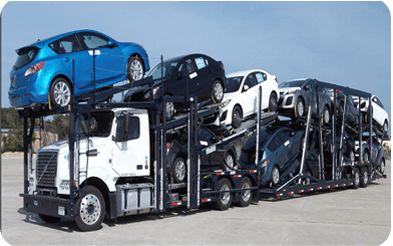The automotive industry has witnessed remarkable advancements over the years, and one crucial aspect that often goes unnoticed is the efficient and specialized world of car transporters. These vehicles play a pivotal role in ensuring that our cars reach their destinations safely and securely. In this blog, we’ll explore the fascinating realm of car transporters, shedding light on their types, functionalities, and the critical role they play in the automotive ecosystem.
Types of Car Transporters:
- Open Car Transporters:
- Open car transporters are the most common type, often seen on highways transporting multiple vehicles at once.
- These trailers are open, exposing the cars to the elements, but they are a cost-effective and efficient means of transportation.
- Enclosed Car Transporters:
- Enclosed car transporters provide an extra layer of protection by enclosing the vehicles within trailers.
- Typically used for luxury or classic cars, these transporters shield the vehicles from weather conditions and road debris.
- Single Car Trailers:
- Ideal for transporting individual cars, single car trailers are often used for short distances or special transportation needs.
Functionalities of Car Transporters:
- Efficiency and Scale:
- Car transporters are designed for efficiency, capable of transporting multiple vehicles in a single trip.
- This scalability makes them a cost-effective solution for manufacturers, dealerships, and individuals alike.
- Specialized Handling:
- Transporters are equipped with advanced systems for loading and unloading vehicles safely.
- Hydraulic systems and ramps ensure a smooth transition for cars entering and exiting the trailers.
- Safety Measures:
- Car transporters prioritize safety, employing secure tie-downs and restraints to prevent any movement during transit.
- Drivers are trained to handle various types of vehicles and are well-versed in the intricacies of securing them for transport.
The Critical Role of Car Transporters:
- Manufacturing and Distribution:
- Car manufacturers rely on transporters to move vehicles from production facilities to dealerships.
- Efficient transportation ensures a steady supply of vehicles to meet consumer demand.
- Dealerships and Auctions:
- Dealerships often use transporters to receive inventory, especially when transferring cars between locations.
- Auction houses depend on transporters to move vehicles to and from auction events.
- Individual Consumers:
- Car transporters offer a convenient solution for individuals relocating or purchasing a vehicle from a distant location.
- Door-to-door transport services make it easy for consumers to have their vehicles delivered directly to their homes.
Conclusion:
Car transporters form an essential link in the automotive supply chain, ensuring the smooth movement of vehicles from manufacturers to dealerships and ultimately to consumers. Whether it’s an open trailer carrying multiple cars across the country or an enclosed transporter safeguarding a classic beauty, these specialized vehicles play a crucial role in maintaining the efficiency and convenience of the automotive industry. As we continue to witness advancements in transportation technology, the world of car transporters will undoubtedly evolve to meet the growing demands of a dynamic automotive landscape.
